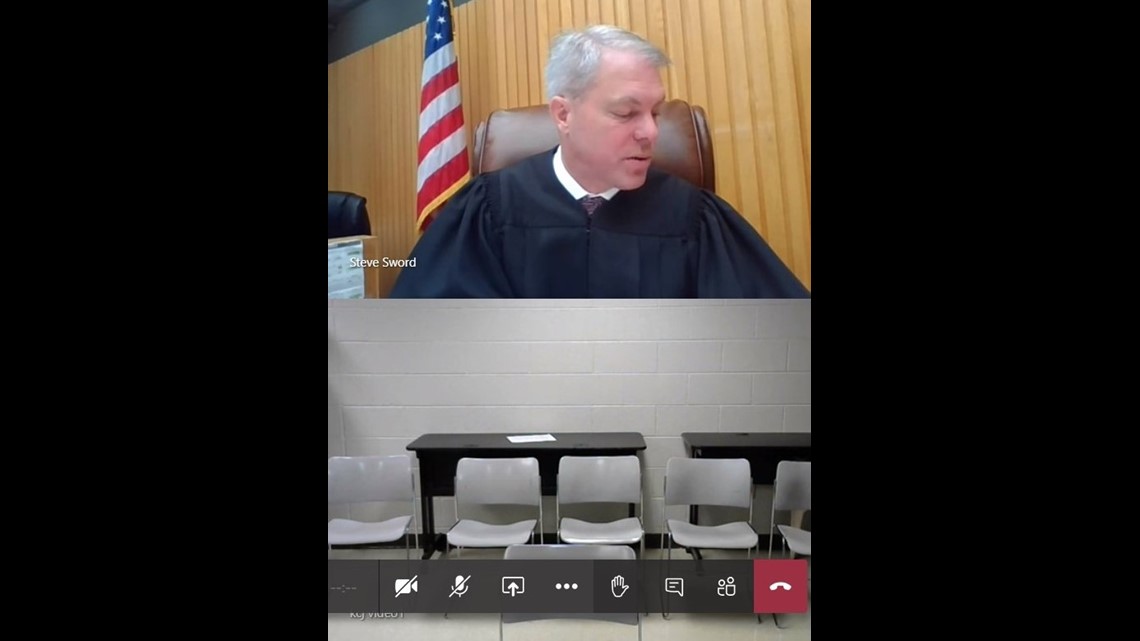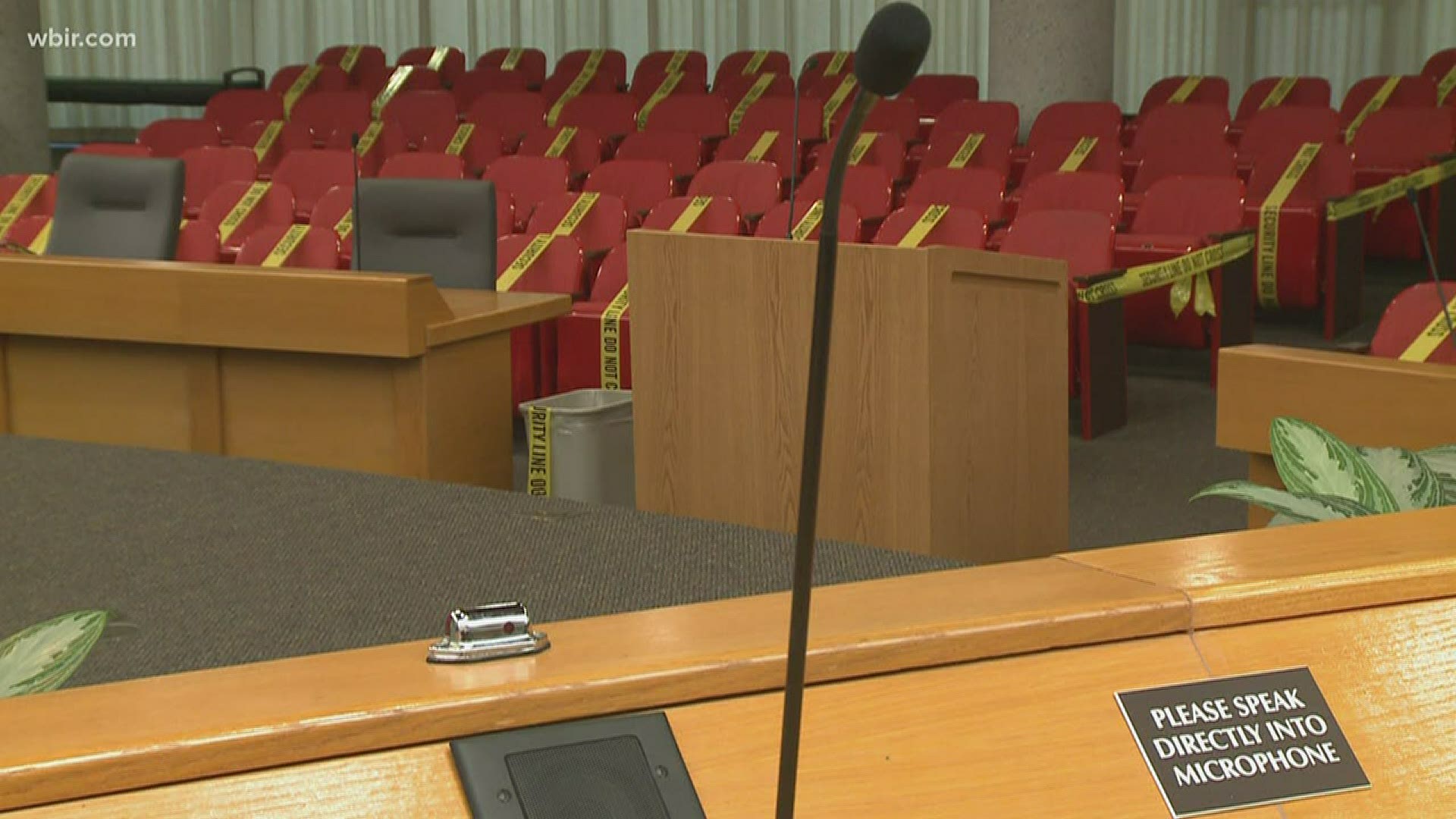KNOXVILLE, Tennessee — Knox County Criminal Court Judge Steve Sword is an old pro at managing his court docket -- via video.
The senior Criminal Court judge has been holding virtual court routinely for weeks on most judicial matters amid the virus pandemic.
No trials can be held until at least early July, by order of the Tennessee Supreme Court. But much of the court's other business such as taking pleas, imposing sentences and conducting routine check-backs is happening every day.
COVID-19 has disrupted the traditional way the public could observe the judicial system. This week the Tennessee Supreme Court took the extraordinary step of holding live hearings on its YouTube channel.
On Thursday morning, Sword allowed WBIR to witness how he conducts his docket remotely via a computer link to the "meeting."
WBIR, along with the News Sentinel, the Tennessee Coalition for Open Government and lawyers and advocates across the state plans to formally ask the state Supreme Court to allow video access so the public and media can watch court proceedings by video and in person.
The groups also are asking for in-person access for the media to the court system.
Right now, under numerous plans approved for local state courts, that's generally not allowed or even envisioned.


Most plans for court functions amid the virus threat only consider plaintiffs, defendants, lawyers and witnesses. And access to a court is generally limited to 10 people.
The media argues it acts as a watchdog on the public's behalf.
Sword, a former prosecutor, said he wants the public to be able to see what's going on in his courtroom. Tennessee courts have been functioning amid the COVID-19 crisis, and that needs to continue, he said.
"As we continue to have court appearances by video, we must also continue to ensure that those hearings are open to the public," he told 10News. "In my court that can be accomplished by allowing a limited number of individuals to observe the video which is broadcast live in the courtroom, as long as that can be done with proper distancing. We can also allow reporters to sign into the call to observe the docket upon request."
Thursday's docket featured Sword bringing up videos of numerous defense attorneys and prosecutors working remotely. Inmates were brought before a camera posted in jail.
Sword spoke with all participants for each case and when necessary explained inmates' rights to them. Much of the morning was spent checking on progress in the case, such as for defendants accused of violating probation while out free.
When the judge was done with one defendant, that person was excused and escorted away from the video conferencing. Then it was time for the next defendant.
At one point, Sword assured lawyers he expected court to be held live come early July.
"I sure hope so," a lawyer replied.
Sword smiled and appeared to shrug.
While not ideal, Sword told 10News that video had proved adequate to tide the system over until people are allowed back into courtrooms.
"We have found that there are many benefits from using video. We will likely continue its use to some degree in certain circumstances even after the social distancing requirements are no longer needed."

